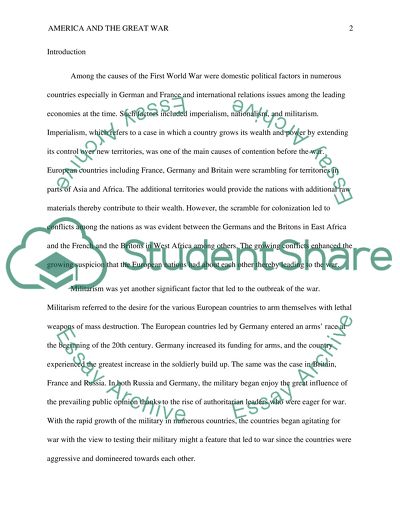Cite this document
(“The Role of America and the Great War Essay Example | Topics and Well Written Essays - 1250 words”, n.d.)
Retrieved from https://studentshare.org/history/1698528-america-and-the-great-war
Retrieved from https://studentshare.org/history/1698528-america-and-the-great-war
(The Role of America and the Great War Essay Example | Topics and Well Written Essays - 1250 Words)
https://studentshare.org/history/1698528-america-and-the-great-war.
https://studentshare.org/history/1698528-america-and-the-great-war.
“The Role of America and the Great War Essay Example | Topics and Well Written Essays - 1250 Words”, n.d. https://studentshare.org/history/1698528-america-and-the-great-war.


